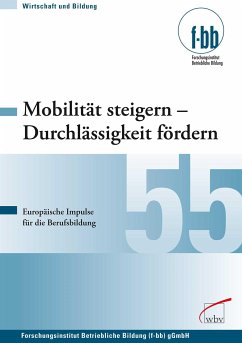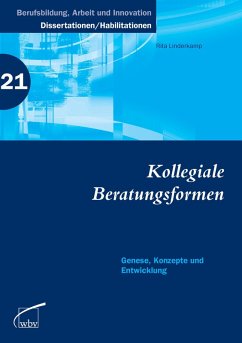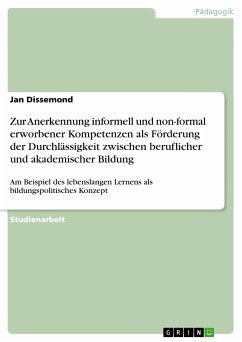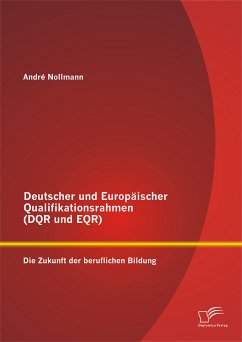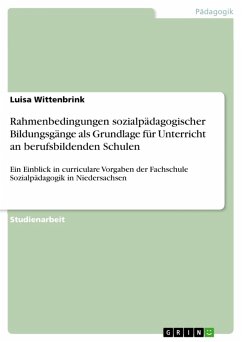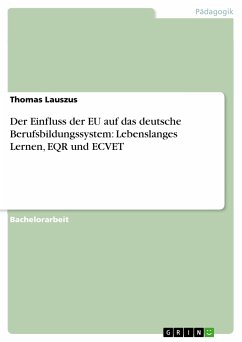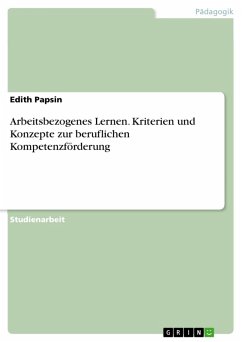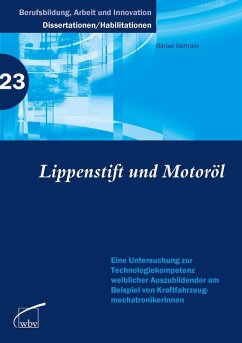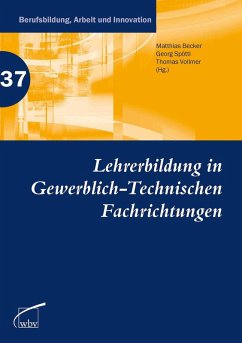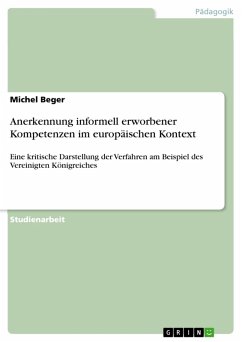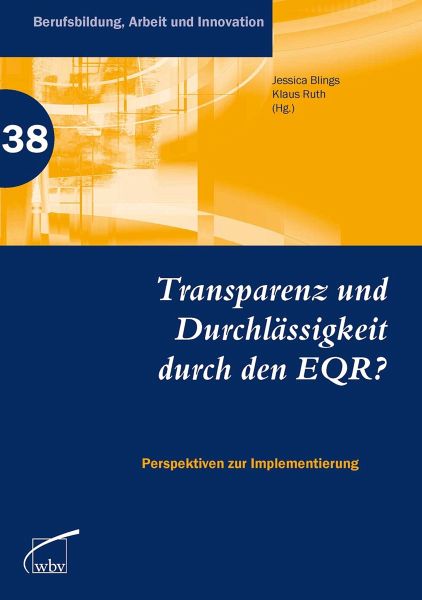
Transparenz und Durchlässigkeit durch den EQR? (eBook, PDF)
Perspektiven zur Implementierung
Redaktion: Ruth, Klaus; Blings, Jessica

PAYBACK Punkte
0 °P sammeln!
Die Einführung des Europäischen Qualifikationsrahmens (EQR) gehört zu den derzeit wichtigsten politischen Reformprojekten in der Berufsbildung. Die Autorinnen und Autoren geben einen Überblick über den aktuellen Stand der Implementierung und erörtern Umsetzungsszenarien. Es werden berufsbildungswissenschaftliche und berufsbildungspolitische Perspektiven diskutiert und mögliche Wirkungen der EQR-Prozesse auf das Bildungssystem, Sektoren, Betriebe und Individuen aufgezeigt. Der Sammelband dokumentiert einen Workshop im Rahmen der Hochschultage Berufliche Bildung 2011. Die Aufsätze stelle...
Die Einführung des Europäischen Qualifikationsrahmens (EQR) gehört zu den derzeit wichtigsten politischen Reformprojekten in der Berufsbildung. Die Autorinnen und Autoren geben einen Überblick über den aktuellen Stand der Implementierung und erörtern Umsetzungsszenarien. Es werden berufsbildungswissenschaftliche und berufsbildungspolitische Perspektiven diskutiert und mögliche Wirkungen der EQR-Prozesse auf das Bildungssystem, Sektoren, Betriebe und Individuen aufgezeigt. Der Sammelband dokumentiert einen Workshop im Rahmen der Hochschultage Berufliche Bildung 2011. Die Aufsätze stellen unter anderem die Ergebnisse aus der Erprobungsphase des Deutschen Qualifikationsrahmens in drei ausgewählten Berufsfeldern vor. Dabei werden Ergebnisse der probeweisen Zuordnung in den Berufsfeldern Handel, IT und Metall/Elektro erörtert. Besonders die Fragen, wie Einschätzungen von Niveaustufen vorgenommen wurden, die Bedeutung der Lernergebnisorientierung sowie die Vergleichbarkeit der bisherigen Ergebnisse sind hier Gegenstand. Ein Blick auf weitere europäische Prozesse, die die Durchlässigkeit und Transparenz in der Berufsbildung erhöhen sollen (Anerkennung informellen Lernens, Anschluss an Hochschulbildung, ECVET), schließt den Band ab.
Dieser Download kann aus rechtlichen Gründen nur mit Rechnungsadresse in A, B, BG, CY, CZ, D, DK, EW, E, FIN, F, GR, H, IRL, I, LT, L, LR, M, NL, PL, P, R, S, SLO, SK ausgeliefert werden.




